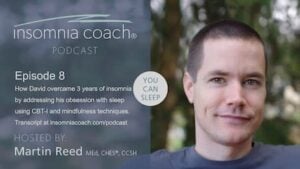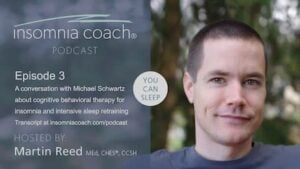A conversation about the challenges of CBT-I (and how to get through them) with clinical psychologist Steve Orma (#10)
Dr. Steve Orma is a clinical psychologist and specialist in the treatment of insomnia and anxiety. He is the author of the book Stop Worrying and Go To Sleep: How to Put Insomnia to Bed for Good, and he provides online treatment for insomnia and anxiety.
In this episode, we talk about how Steve got through his own insomnia using cognitive behavioral therapy for insomnia (CBT-I) techniques and the common challenges people face when implementing CBT-I techniques.
The fact of the matter is that, in the short term, CBT-I techniques can be hard to implement — but if you are committed and consistent, your sleep will improve.










